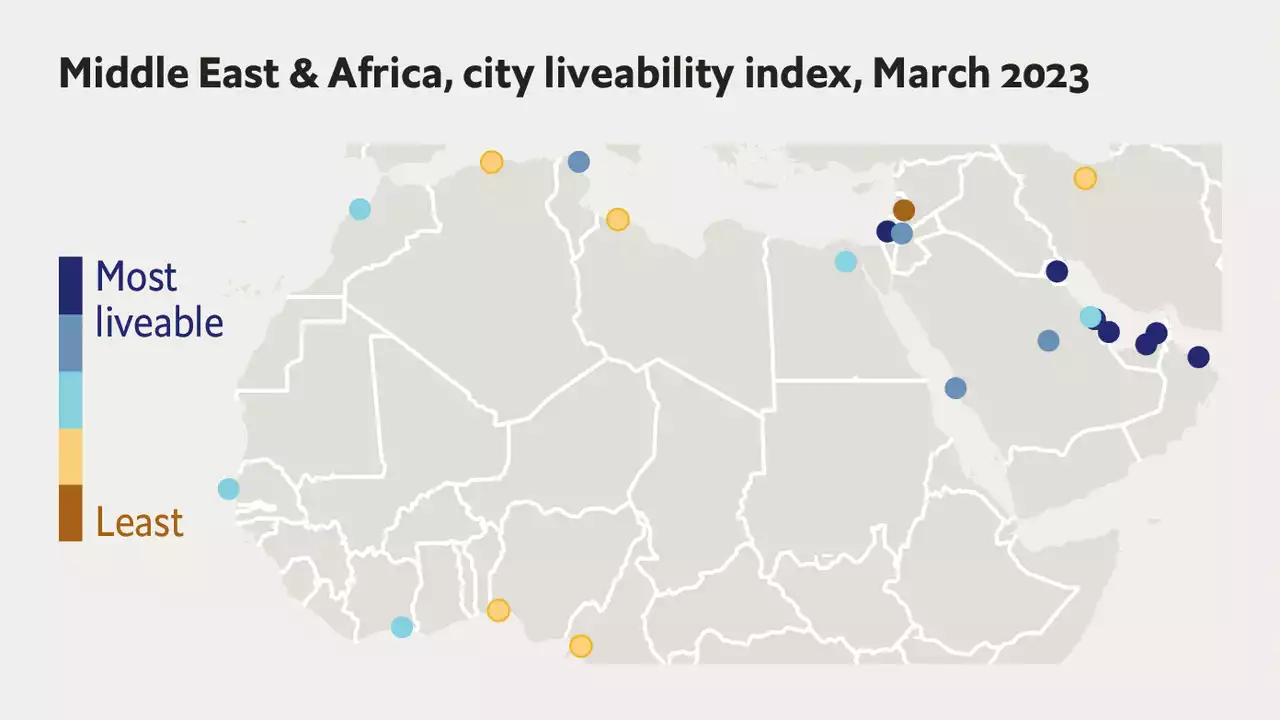Algiers and Lagos—both in energy-exporting countries—have benefited from rising energy prices. Their governments have pumped money into public services and infrastructure
worries that its citizens may get trapped in their lifts. Frequent power outages in Cairo, the capital, during the sweltering summer months mean that such miserable confinement is not an unlikely occurrence. Like many other cities in the Middle East and Africa, Cairo’s wobbly infrastructure makes it a difficult place to live. Food inflation is running at 66%, and members of the middle class are, our sister company, and its liveable cities index.
Abu Dhabi retained its top spot in the region, thanks to good scores for its infrastructure and stability. Dubai, another city in the United Arab Emirates, was a close second. Tel Aviv in Israel, once a beacon of democracy in the region, came third. But its score was dragged down by increased instability—in large part because of unrest spurred by theThere were other notable shifts across the Middle East and north Africa.
